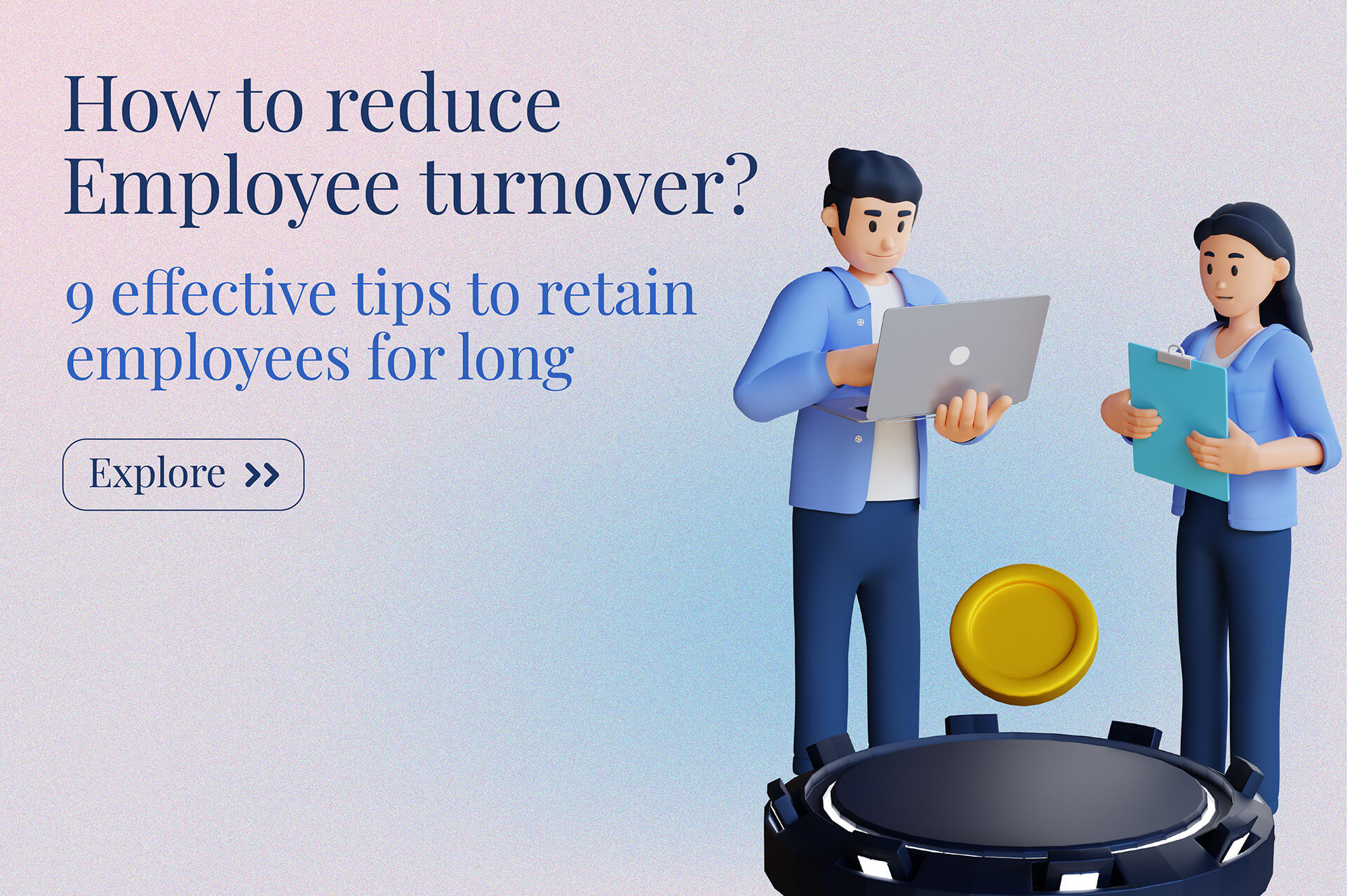Employees’ skillsets and dedication are decisive factors for an organization to survive and thrive. Therefore, companies strive to establish and maintain an adequate talent pool. Without dependable and talented employees, sustaining profitability and growth is challenging.
Nevertheless, even with the implementation of sound resource management practices, organizations face challenges in formulating strategies for retaining their valuable workforce. As a result, employee turnover is a significant challenge for most organizations.
In the present scenario, employees seek more than just a paycheque; they yearn for a fulfilling work environment that fosters personal growth and career advancement. The responsibility falls on decision-makers to cultivate a culture that prioritizes employee well-being while aligning with the organization’s long-term goals.
Here are nine practical tips that will help you retain employees for a long.
Trust:
Trusting an employee is fundamental for fostering a positive and productive work environment. It cultivates a sense of empowerment & confidence and encourages them to take ownership of their responsibilities, ultimately motivating them to perform at their best. By trusting their employees, employers create a harmonious workplace and lay the foundation for mutual growth and success, making it difficult for the employees to leave.
Challenge:
Challenging employees is essential for their professional growth and development. They strive to discover their full potential when you push them beyond their comfort zones. It makes the job more enjoyable by fostering innovation, creativity, and a continuous improvement mindset.
Empowerment:
As mentioned earlier, employees do not just yearn for money; they also want recognition and growth. Empowering teams within the organization is essential to foster a sense of ownership, autonomy and accountability. This boosts their motivation and also unlocks the collective potential of team members. When employees feel they are valued, they do not give up easily.
Appreciation:
Appreciating employees is crucial for employee retention as it recognizes their hard work and contributions. Appreciation in whatever form, words or paycheque, boosts their morale and enhances job satisfaction. Appreciation is essential for creating a positive work culture. Stimulating loyalty and motivation, it reduces the likelihood of turnover and attracts top talent to the organization.
Mentorship:
Mentorship plays a vital role in employee retention by providing guidance, support, and professional development opportunities. Mentors help employees navigate their careers, build valuable skills, and gain insights from their experience. Organizations can create a sense of belonging, growth, and engagement through effective mentorship programs, leading to higher employee satisfaction and retention rates.
Recognition:
Recognition validates employees’ efforts, boosts their morale and enhances job satisfaction. Recognizing employees’ accomplishments motivates employees to continue performing at their best, increasing loyalty and reducing turnover.
Fair pay:
Even if you do not have deep pockets to pay your employees as much as your competitors, you can always push yourself to meet the industry standards. Fair pay demonstrates their value and worth within the organization. When employees are compensated fairly, it promotes job satisfaction, motivation, and a sense of financial security, reducing the likelihood of seeking employment elsewhere.
Belongingness:
Uniting employees around a shared mission is crucial for long-term employee retention as it creates a sense of purpose, belonging, and alignment with the organization’s goals. Employees who feel connected to the mission are more likely to stay committed and engaged, resulting in higher job satisfaction and loyalty.
Inclusion:
The inclusion of employees is a crucial factor in long-term employee retention. Organizations can achieve it by giving meaningful responsibilities, providing support and asking for their input. It induces a sense of belonging and value. This approach empowers employees, strengthens their commitment to the company, and nurtures a collaborative and supportive work environment.
